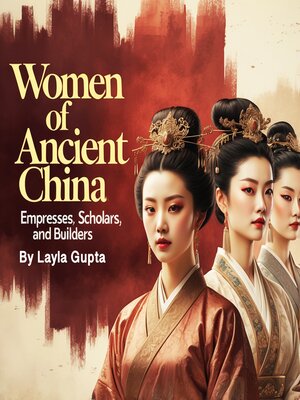
Sign up to save your library
With an OverDrive account, you can save your favorite libraries for at-a-glance information about availability. Find out more about OverDrive accounts.
Find this title in Libby, the library reading app by OverDrive.



Search for a digital library with this title
Title found at these libraries:
| Library Name | Distance |
|---|---|
| Loading... |
In ancient China, a woman's place in society was shaped by a deep-rooted system of values that emphasized hierarchy, duty, and tradition. From birth, girls were taught the virtues of obedience, humility, and domestic responsibility—qualities believed to ensure familial harmony and uphold social order. These expectations were not merely cultural but were reinforced by state philosophy, especially Confucianism, which placed women within a strict patriarchal structure.
Confucian teachings emphasized a "Three Obediences" rule: a woman must obey her father before marriage, her husband during marriage, and her son in widowhood. This framework confined women largely to the private sphere and discouraged female independence. Even so, this ideology did not completely erase their influence. Women often wielded subtle but meaningful power within the home, guiding family affairs, managing finances, and raising the next generation in accordance with moral and cultural norms.
Women's lives were further shaped by their class and family background. Elite women had access to education, poetry, and the arts, and they could sometimes play key roles in managing household affairs or even participating in court life. Their influence, though largely informal, could stretch far when navigating palace politics or securing power through marriage alliances. In contrast, women of lower classes worked alongside men in the fields, sold goods in markets, or labored in homes and workshops. These working women formed the backbone of the economy, though their contributions often went unrecorded in historical texts.







